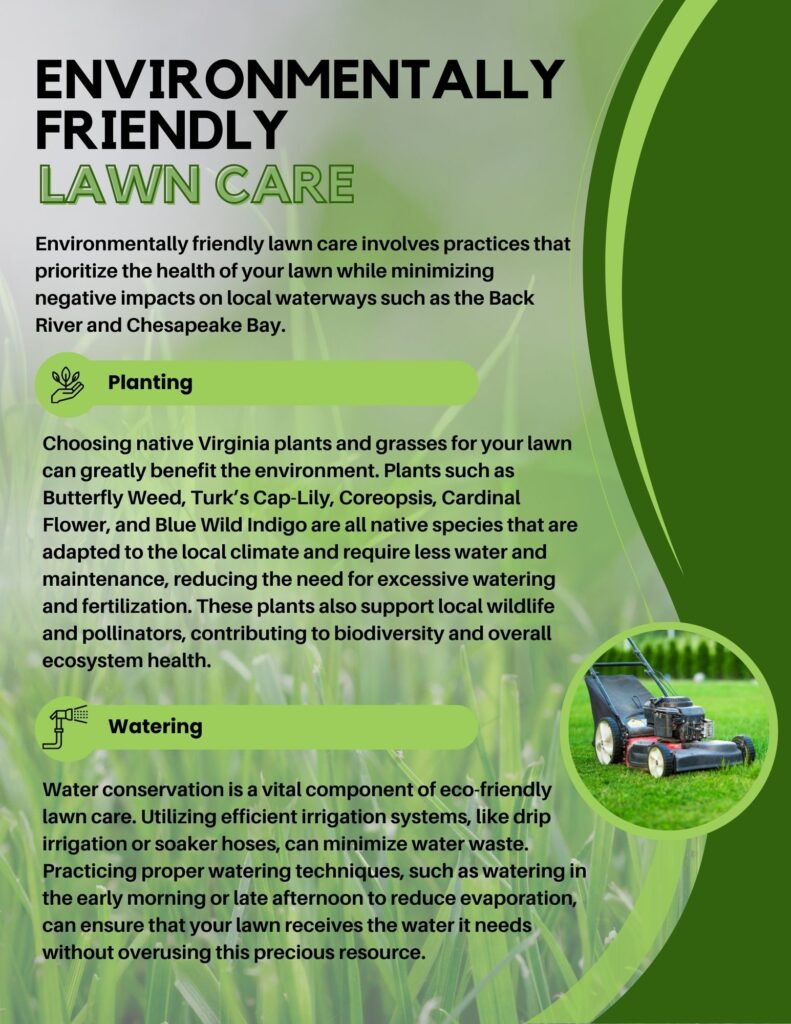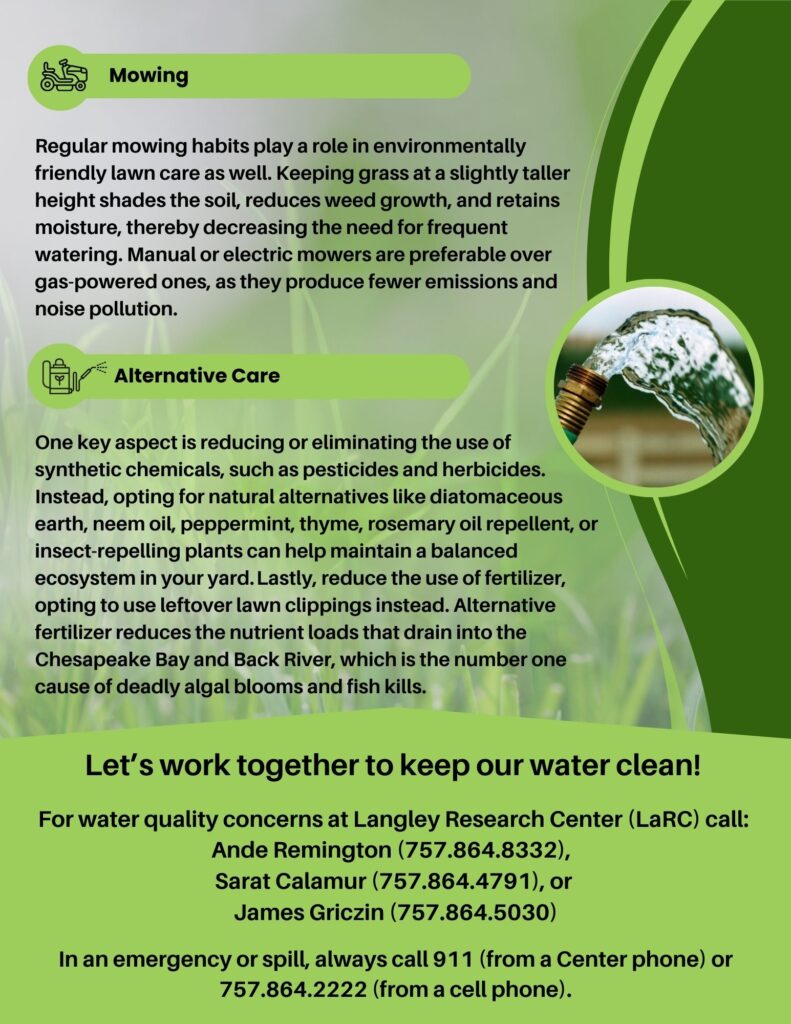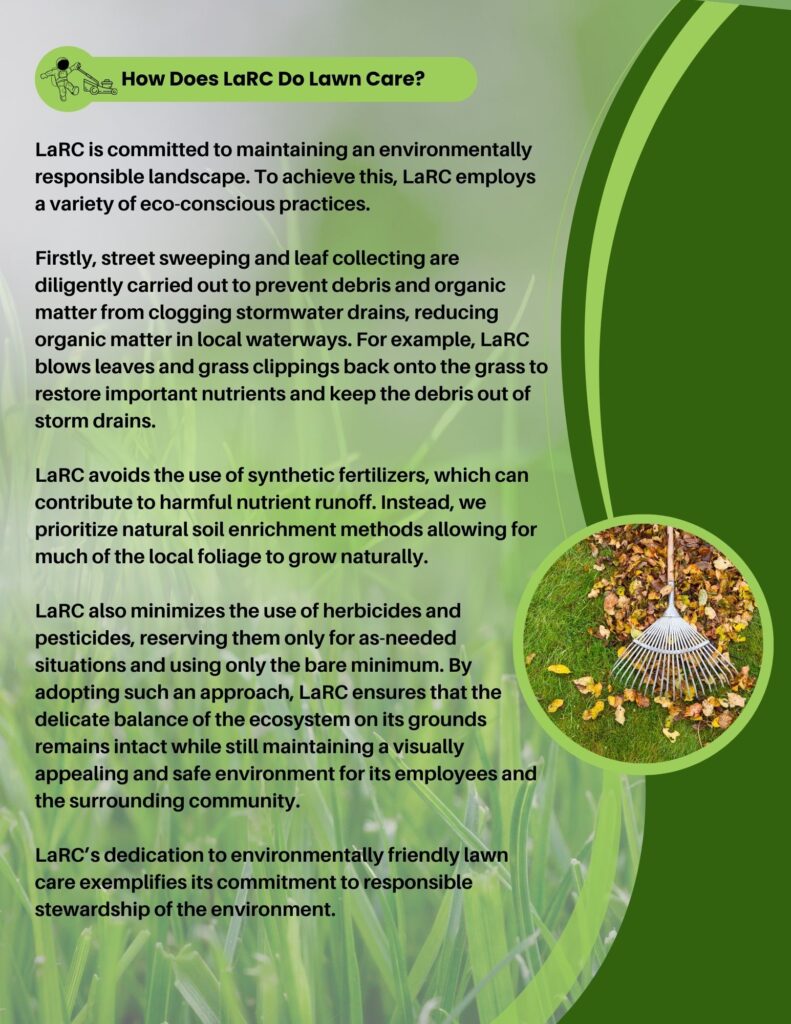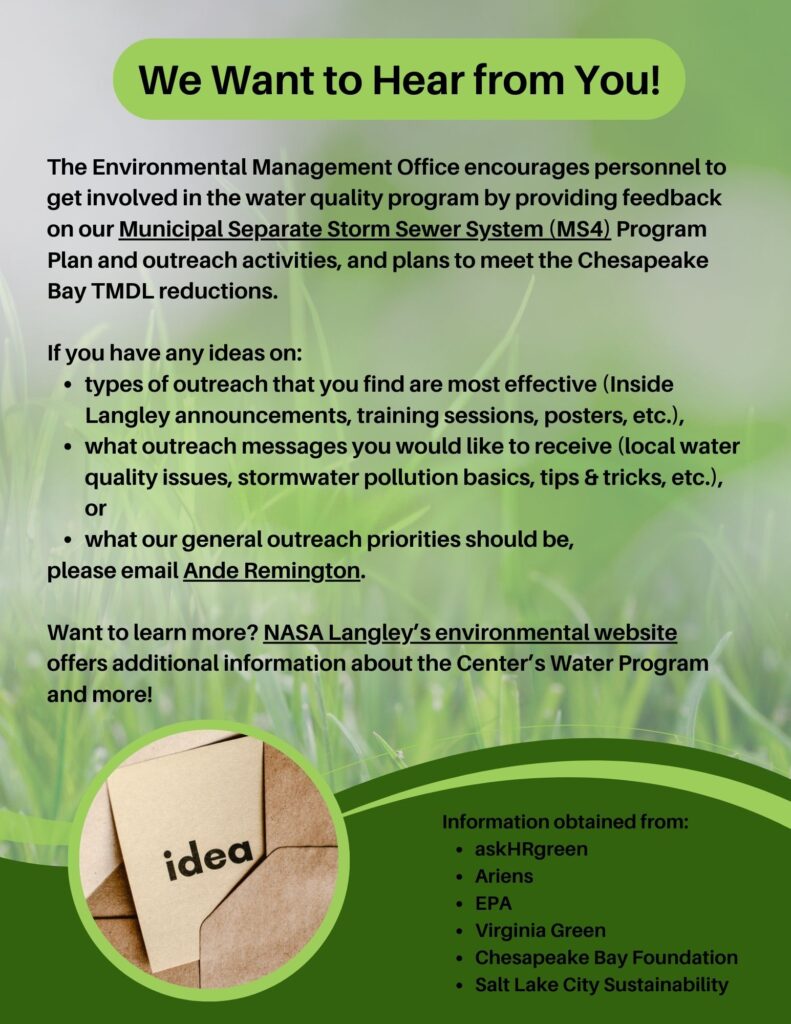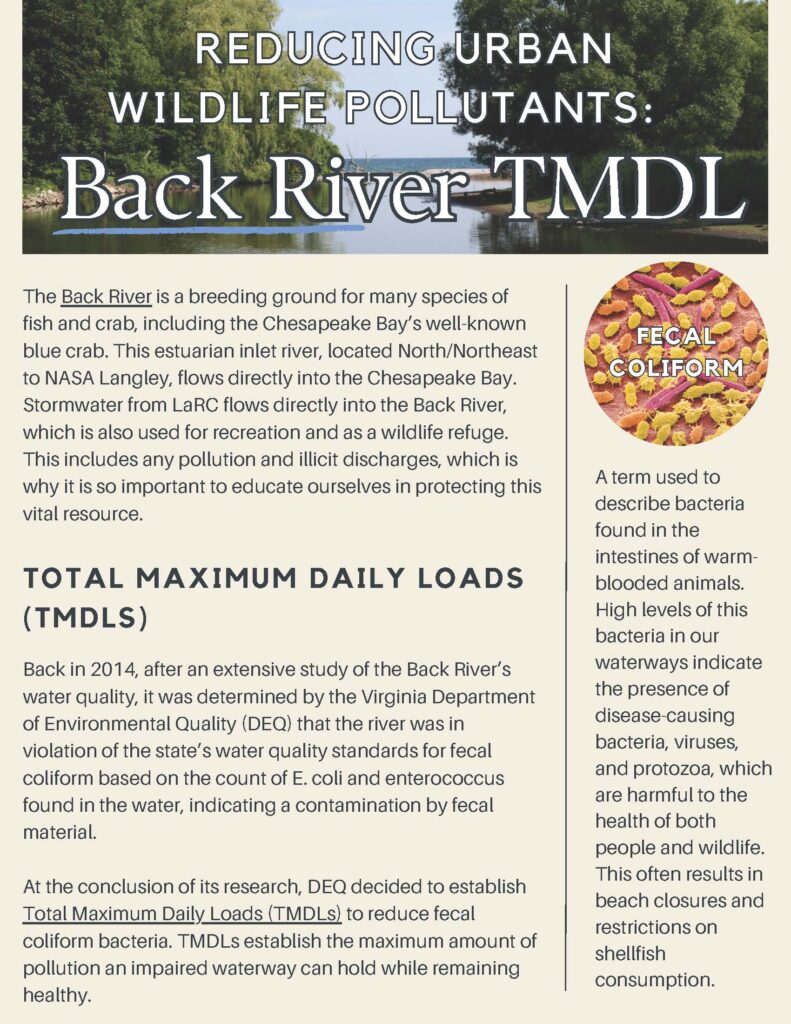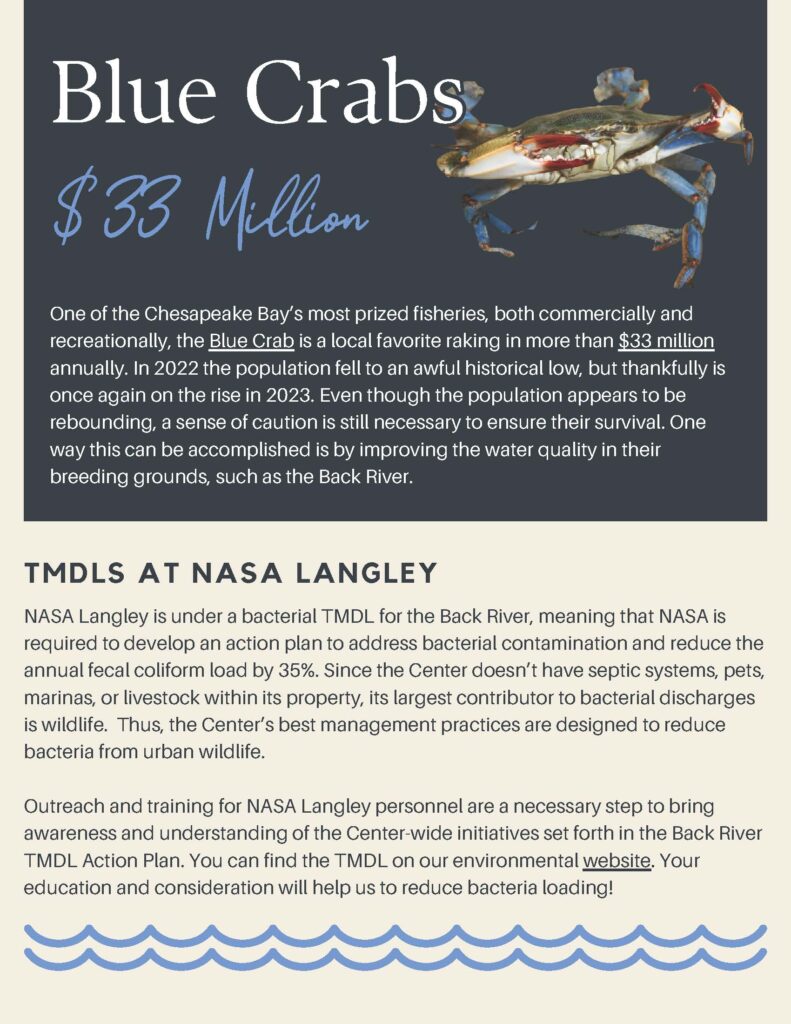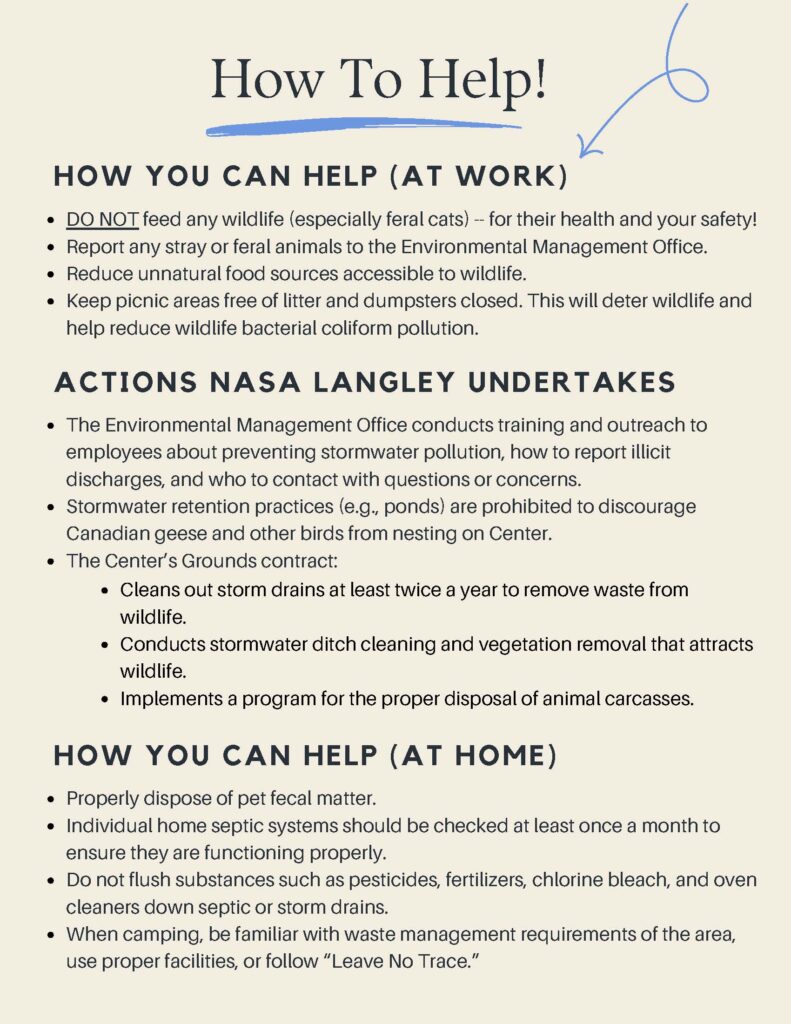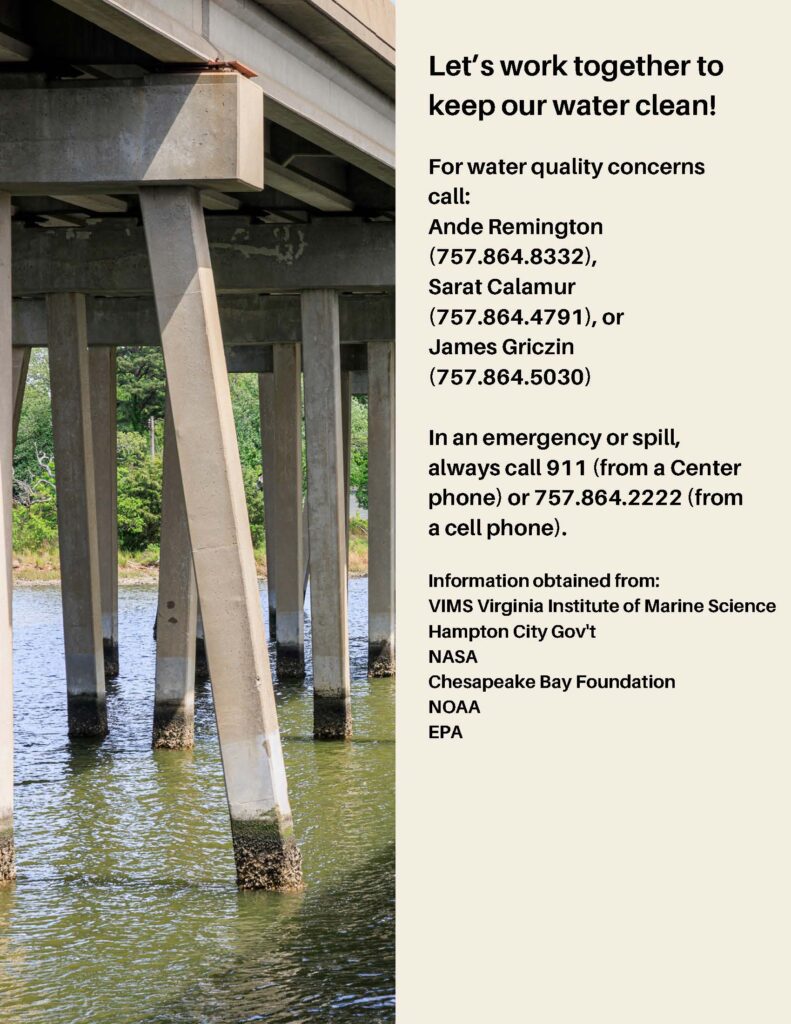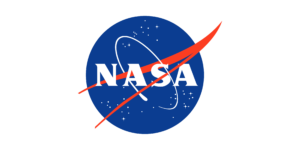NASA Langley’s Environmental Management Office (EMO) informs personnel about environmentally friendly lawn care practices that prioritize the health of lawns while minimizing negative impacts on local waterways such as the Back River and Chesapeake Bay.
This quarter’s stormwater article provides information about best management practices and explains the variety of eco-conscious methods that the Center uses.
Help keep our local waterways clean by committing to maintaining an environmentally responsible landscape.
